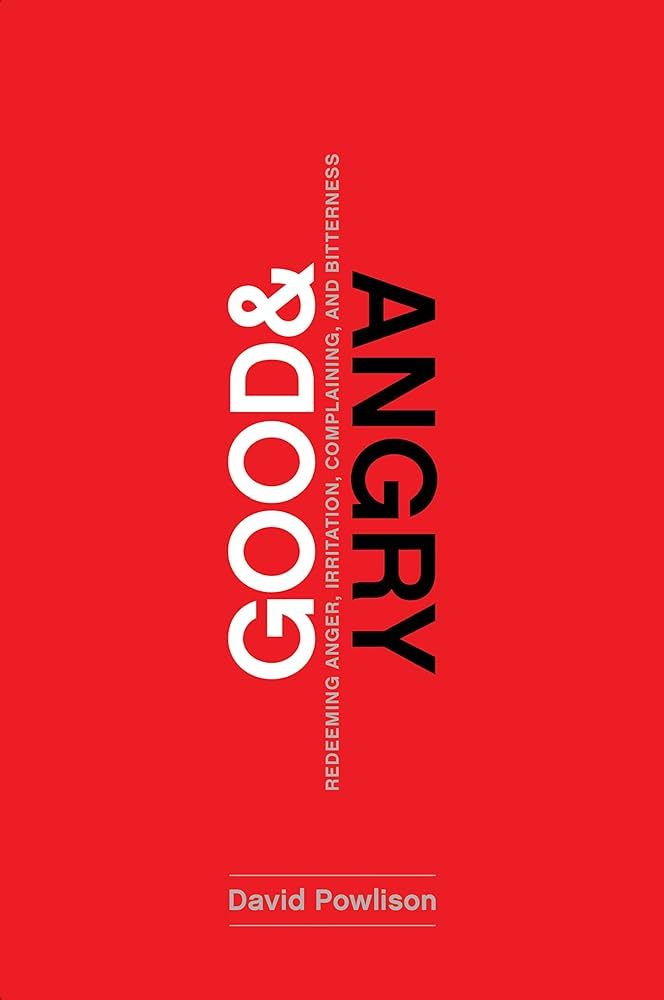Anger.
If you’re struggling with anger, we’re here to help. On this page, we’ll explore some basics of what anger is, potential causes of an anger problem, and some “first aid” steps for you to consider as you start to address the problem.
The Experience of Anger
When we think of anger, we often think of explosive outbursts of rage; yelling, throwing things, pointing fingers, and slamming doors. While this is one expression of anger, it is not the only one. The subtle frustrations, irritations, and annoyances of daily life capture another expression of anger. This one looks like eye rolls, complaints, huffs-and-puffs, and plenty of uttering “Ugh!” What about this one: the stone-cold, silent, expressionless, brooding anger that stays under the surface…or so you think. Or another: the underlying bitterness that just lingers unnoticed for years and years. Maybe you’re just always angry at yourself under the surface, and this anger comes out in perfectionism, critical self-talk, and impatience.
What is anger? I mean, what is it really, underneath the experience of shaking fists and high blood pressure? In short, anger is the perception of injustice or a violation of personal desires. Anger says, “Something’s wrong.” Like the itchy skin irritated by a clothing tag, the sensation is alerting you, saying, “Hey, I don’t like this! Do something!” Here's a few more things that anger is:
Anger is from God
God has plenty of anger. He has anger because He has love. He loves certain things, like people, justice, righteousness, life, and unity. When evil works against these, He experiences anger.
Because God has anger, we have anger, that we also may identify when something is working contrary to God’s good design. Anger can be a helpful tool to identify something wrong and work constructively to renew it or solve the problem. The “issues” in “anger issues” only come when sin gets involved.
Anger is from your heart
Anger comes from within. It comes when the desires and values of your heart collide with a harsh reality which violates them. Whether you’re ashamed of your anger or feel like it’s your only defense, that anger has something informative to tell you. It alerts you to what you truly love.
Let’s patiently listen in to see what your anger is saying about your heart and about what you perceive in the world around you.
Anger is bodily
Like other emotions, you experience anger in your body. It’s not purely an intangible state. Why does this matter? Your experience of anger is influenced by your body, so it can be wise to engage your anger physically, in addition to emotionally and spiritually.
Anger can be righteous or sinful
Your anger does not need to be squashed, but redeemed. If your anger can accord with God’s values, be saturated with His character, and act using His designated methods, your anger will be a productive tool for His kingdom.
Sadly, as fallen, sinful people, our anger is scarcely so constructive. If your anger has more to do with self-orientation and pride than it does with zeal for God’s reputation and purposes in the world, then that is an indication of sinful anger. If you act hatefully or destructively in your anger, this too is an indicator of sinful anger. Bitterness, rage, impatience, unkindness, condemnation, slander, and any other means of falling short of the fruits of the Spirit are sin.
But there's good news. If your anger is destructive or selfish, the gospel has help and freedom for you in abundance.
Possible Causes
These are not diagnostics or mutually exclusive categories. This is not a comprehensive list or a sufficient tool to determine causes of anger. Rather, these categories and their corresponding identification questions are meant to spark self-reflection, curiosity, and further exploration about what might be underlying your struggle with anger.
Physical malady
- Are you regularly experiencing the sensations of anger, but don’t know what you’re angry about? Are you having other physical symptoms that could cause aggravated (anger-like) sensations? Did your anger start alongside or after physical strain? If any of these are true of you, a biological problem may be playing a significant role in your anger.
- How are your sleeping, eating, physical activity, and social habits? While these are unlikely to cause the experience of anger on their own, they may influence the severity of the experience.
Unresolved sadness
- Have you experienced a traumatic event? Have you lost someone significant to you? Have your hopes or expectations for the future been lost? Have you been sinned against and feel hurt? If you’re experiencing grief or hurt, the sadness from these may be expressing itself in anger.
Self-protective fear
- Is your anger provoked in situations where you feel unsafe? In moments of anger, do you feel a need to defend yourself or others? Does anger feel like a shield or an essential tool, without which you are in harm’s way? Your anger may be an expression of fear.
Lingering unforgiveness
- Do you ruminate on a circumstance when you were sinned against or harmed in some way? In moments of anger, does your mind drift back to a person or situation? Do you feel outrage, disgust, or bitterness? Is irritation at a particular person quickly kindled? While some of these can be expressions of hurt or “unresolved sadness” (particularly after a traumatic event), in other cases these may indicate a state of unforgiveness.
Desperation (idolatrous desire)
- Do you feel quickly provoked when your plans, ideas, or preferences are hindered? In your most recent experience of anger, was your comfort, preference, or reputation being threatened? Were you trying to control something or someone in that moment? Is your anger less directed at a particular person, and more directed at anything that stands in the way of what you want? Your anger may be coming from a desire (maybe a desire for a good thing) that has become a demand. While some of these can be expressions of self-protective fear (such as in the context of an oppressive relationship), in other cases these may indicate that good gifts have become objects of worship.
Despair in suffering
- Do you feel resigned or hopeless because of ongoing hardship? Do you feel tired of the struggle to overcome something? Do you feel generally angry about your life’s circumstances? Do you feel anger at God for the troubles you’re facing? Do you struggle to find hope? You may be experiencing despair in suffering.
Perception of injustice
- Do you feel angry about explicit sin and mistreatment? Do you see injustice, oppression, abuse, or other violations of human rights? Do you feel like God is being dishonored or His values are being violated? You may be experiencing a righteous perception of injustice.
- Hint: all anger is about injustice on some level, whether it real or perceived, selfish or selfless.
Next Steps
If you read through possible causal factors to consider, you might have noticed that anger can be incredibly complex. And the list above doesn't include familial, societal, or circumstantial factors! Much more could be said about anger than what we have addressed here.
Regardless of the cause of your anger, at some point it boils down to the fact that you’re perceiving something you don’t like, and you want to do something about it. There probably is something to do to rectify a situation or relationship. But first, always address your own heart. These steps are designed for 3 purposes:
- To help you to listen in to what your anger is saying about your heart.
- To help you to move towards humble, compassionate, and constructive anger and to diffuse any pride, impatience, or other sin that would hinder your ability to respond to your anger appropriately.
- To move you toward experiencing the help that you're already able to receive in God, your family, and your friends.
Comprehensively responding to anger from any of the identified causes is too individualized of a process to neatly identify everything you need here. Still, these general steps for doing a “first aid” response to anger may be a helpful starting place.
Keep an anger log
I would generally recommend an anger log to everybody struggling with anger. This can help you identify where your anger is coming from or understand your anger more deeply. The patterns that emerge after keeping this log may help expose what is happening in your heart. Keep a log recording the answers to these questions after every instance of anger for at least a week.
1. What happened that provoked anger?
2. What did you want in that moment?
3. What did you do in response to the anger?
4. What do you wish you had done differently?
5. Were there other noteworthy circumstances around the anger (time, recent events, feeling hungry or tired, etc.)?
If your anger has flared up at different times in your life, it may be worthwhile to create a timeline, identifying periods of time when anger flared up and what was happening before and during that time.
Talk about it
Talk with others. Tell your story. Live in the light. Don't try to cover up or hide your struggle with anger. Confess any sin in humility and guard against gossip. Let trustworthy people see into your heart and life so that they can provide support and wisdom to navigate and respond to it. It’s a simple step, but a powerful one.
Talk with God. Coming to the Lord in prayer provides a space for confession of sin (battling the pride driving anger), for recognizing and remembering the Lord’s goodness (battling fear), for thanking the Lord for His mercies (battling despair), and for bringing our requests to Him. In prayer, we entrust ourselves to the One who judges justly (battling the urge to retaliate in anger and enact our own vigilante justice). Notice how many of the potential causes of anger are touched on here!
Meditate on Scripture
If you have an active relationship with Jesus, holding onto certain words of His that speak comfort, clarity, wisdom, or hope to you can be like having a powerful anchor in a storm of anger. The power in this is that it brings you into contact with a Person - the person of Jesus - who is near to help you in times of need. Consider viewing this blog post that identifies truths that may speak to your anger.
Note: This is not a cure-all. While this is a positive exercise, mustering the strength to recall good truths is not inherently a cure for anger.
Medical examination
If you can’t find any rhyme or reason to your anger and don’t know what you’re angry about, but you feel physically angry and are experiencing other physical symptoms, consider paying your doctor a visit.
Service to others & thankfulness to God
These may not feel like potent cures, and indeed, they are no panacea. However, if your struggle with anger makes it hard to see anything good, it can be surprisingly powerful to be reoriented by stepping outside of your own hardship. Two ways to do this are to serve someone else and to spend time specifically naming what you are grateful for to God.
Wait
Consider how to solve the problem provoking you to anger, but wait to act until you’re seeing clearly without the fog of unaddressed sin obscuring your vision.
Take time to address any “log in your own eye,” or any trace of sin in your heart before acting on your anger.
Be patient with yourself. Anger can be confusing and persistent. God is patient with you in your struggle with anger, so work to receive that patience as you navigate it.
Approach the problem
It may be time to develop a plan to tackle the problem that is provoking your anger. If there is a problem that was traumatic in the past and has left you reeling or if the problem is persistently causing pain in your life currently, utilize the help of God and others to work on addressing it.
Concluding Thoughts
It can hardly be overstated that the contents of this page are not reconstructive surgery, but first aid. Sometimes, a one-size-fits-all Band-Aid is all you need. Other times, it only helps you make it to the hospital where the real work can be done to help. Similarly, this page is generalized and introductory. If it is sufficient to help you, praise God that you were helped! If not, you are not alone. You may benefit from taking more time to connect with someone who can hear your story and provide help that is tailored to your needs.
Other Resources
If you would like to do more learning or reflection, consider viewing these books and articles.
Articles:
The blog post, "Firehose" Truths For Sinful Anger provides encouragements from Scripture that speak to many of the potential root causes of anger. It is a worthwhile read even if you do not suspect that your anger is sinful. Whether your fear is coming from fear, hurt, or a destructive relationship, this article applies Scripture directly to your heart. Find what speaks to you and hold onto it!
The blog Putting Out the Fire of Sinful Anger provides a worksheet that you may use in moments of anger when you need help to step back and get grounded in truth. For a PDF download of this worksheet, click here.
Books:
David Powlison's Good & Angry will take you deeper into the heart of anger. It will help you unpack what desires are at play in your anger and provides a biblical and practical path forward. Powlison writes with warmth, humor, and wisdom that makes you feel like you're being taken by the hand and led by a seasoned veteran - a master of people AND of Scripture.
Ed Welch's A Small Book About a Big Problem is a devotional book with short, conversational, two-minute reads. There are 50 devotions complete with rich Scripture applications, personable stories, personal reflection questions, and practical steps forward.







